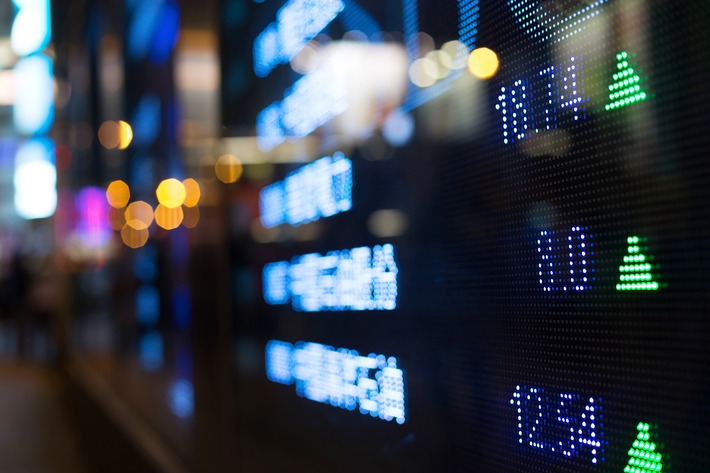Asia stocks saw a mixed start to the week with fears of a global recession continuing to cast a long shadow over trading floors though China’s markets rallied after opening in the red.
Japanese stocks fell, tracking Wall Street’s slump from the previous session, as investors braced for more signals of a worldwide slowdown, although tourism-related shares performed well after Tokyo opened its borders last week.
Japan’s Nikkei share average plunged well below the key 27,000 psychological barrier on opening and closed down 1.16% at 26,775.79. The index stabilised in the afternoon, supported by positive US stock futures. The broader Topix index fell 0.98%.
Also on AF: China Needs Extra $17tn to Reach Net Zero by 2060: World Bank
The Nikkei had seen its biggest percentage gain since March on Friday but high-growth stocks weighed down the index on Monday, with online medical services company M3 Inc dropping 3.9%, while department stores were some of the best performers.
Last week, Japan reinstated visa-free travel to dozens of countries, ending some of the world’s strictest border controls to slow the spread of Covid-19.
Prime Minister Fumio Kishida is counting on tourism to help invigorate the economy and reap some benefits from the yen’s slide to decades-low level.
MSCI’s broadest index of Asia-Pacific shares outside Japan eased 1.2% and back toward last week’s two-and-a-half-year low.
Chinese blue chips dipped early on ahead of GDP data due on Tuesday but mainland and Hong Kong shares staged a late rally despite Beijing doubling down on its strict ‘zero-Covid’ policy.
The Shanghai Composite Index rose 0.42%, or 12.96 points, to 3,084.94, while the Shenzhen Composite Index on China’s second exchange was up 0.68%, or 13.48 points, to 1,997.81.
The Hang Seng Index gained 0.15%, or 25.21 points, to 16,612.90.
UK Bonds Under Pressure
Elsewhere across the region, South Korea’s Kospi advanced 0.32% while Indian stocks were up too with Mumbai’s signature Nifty 50 index up 0.69%, or 118.40 points, at 17,304.10.
Globally, investors are braced for further drastic tightening with all the risks of recession that brings.
And added to concerns about financial stability is the drama with UK bonds, now that the Bank of England’s (BoE’s) emergency buying spree is over.
Prime Minister Liz Truss’ decision to fire her finance minister might help reassure investors, but her own fate is unclear with media reporting Tory lawmakers will try and replace her this week.
BoE Governor Andrew Bailey warned over the weekend that interest rates might now have to rise by more than thought just a couple of months ago.
And with S&P 500 futures an eye-watering 25% off its peak, BofA economist Jared Woodard warned the slide was not over given the world was transitioning from two decades of 2% inflation to a time of something more like 5% inflation.
“$70 trillion of ‘new’ tech, growth, and government bond assets priced for a 2% world are vulnerable to these secular shifts as ‘old’ industries like energy and materials surge, reversing decades of under-investment,” he wrote in a note.
“Rotating out of 60/40 proxies and buying what is scarce – power, food, energy – is the best way for investors to diversify.”
US Dollar Surge Continues
A red-hot US consumer price report and rising inflation expectations have markets fully expecting the Federal Reserve to hike rates by 75 basis points next month, and likely by the same again in December.
In currency markets, the dollar remains king as investors price in US rates peaking around 5%.
The yen has been particularly hard hit as the Bank of Japan sticks to its super-easy policy, while authorities refrained from intervention last week even as the dollar sped past the 148.00 level to 32-year peaks.
Early Monday, the dollar was up at 148.73 yen and heading for the next target at 150.00.
The rise of the dollar and global bond yields has been a drag for gold, which was stuck at $1,648 an ounce.
Oil prices were trying to bounce, after sinking more than 6% last week as fears of a demand slowdown outweighed OPEC’s plans to cut output firmed 64 cents to $92.27 a barrel, while rose 55 cents to $86.16 per barrel.
Key figures
Tokyo – Nikkei 225 < DOWN 1.16% at 26,775.79 (close)
Hong Kong – Hang Seng Index > UP 0.15% at 16,612.90 (close)
Shanghai – Composite > UP 0.42% at 3,084.94 (close)
London – FTSE 100 > UP 0.37% at 6,884.35 (0935 BST)
New York – Dow < DOWN 1.34% at 29,634.83 (Friday close)
- Reuters with additional editing by Sean O’Meara
Read more:
‘Huge’ Dollar Buying by China State Banks to Bolster Yuan
IMF Warns Asian Central Banks Must be Ready to Tighten More
Yen Dives to 32-Year Low as Relentless Dollar Powers On
























